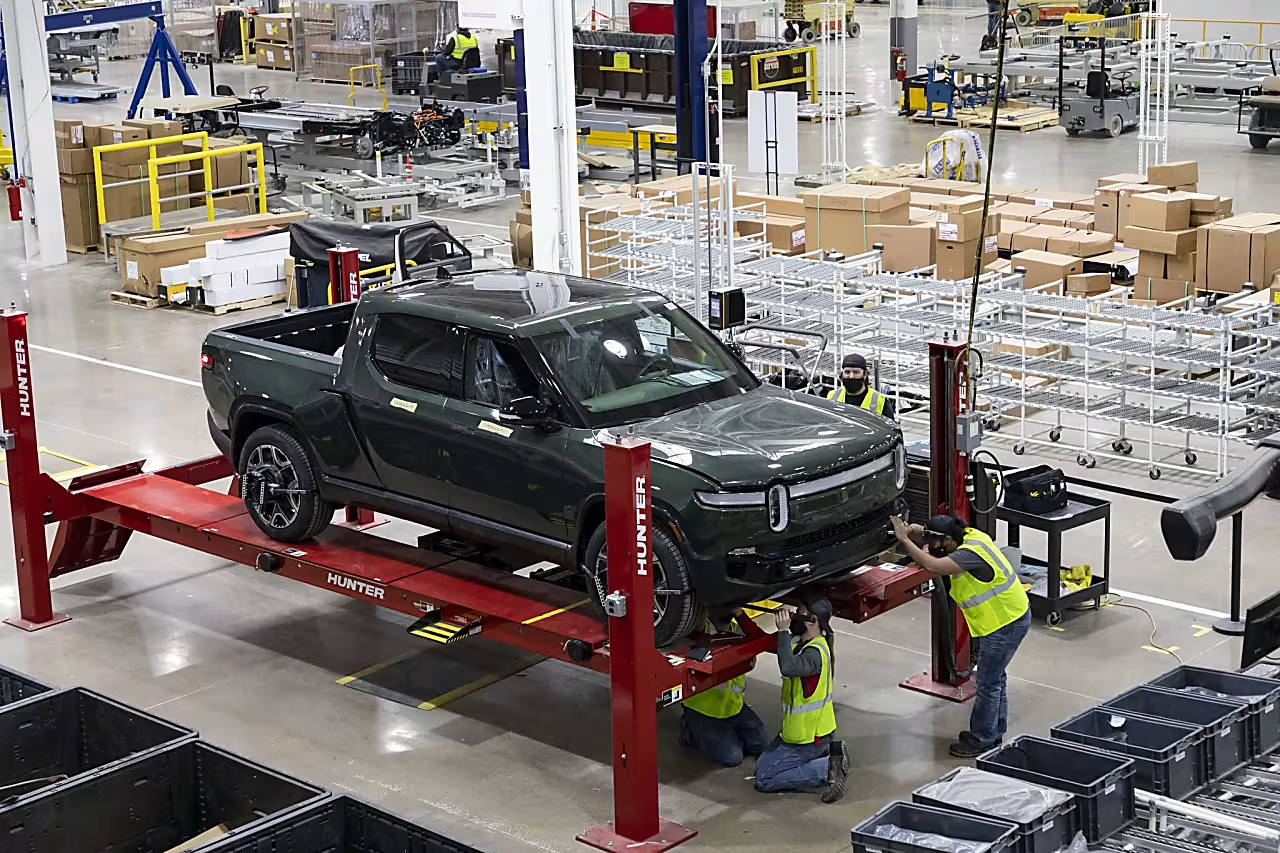Introduction
The global automotive market is currently navigating a period of significant transformation, influenced by various macroeconomic, technological, and geopolitical factors. From shifts in consumer behavior to the rapid evolution of new vehicle technologies, the automotive landscape is undergoing constant change. At the same time, global events, such as the COVID-19 pandemic, fluctuations in oil prices, and supply chain disruptions, continue to affect how manufacturers operate, how consumers make purchasing decisions, and how the broader market performs.
In this article, we will examine the current trends and economic factors shaping the global automotive market. We will also explore the impact of global events, including the ongoing pandemic and fluctuating oil prices, on the automotive sector. Understanding these factors is crucial for both industry stakeholders and consumers looking to stay informed about the future direction of the automotive industry.
Market Trends: A Look at Current Trends and Economic Factors Shaping the Global Automotive Market
The global automotive market has always been heavily influenced by economic conditions, consumer preferences, and technological innovations. In recent years, several major trends have emerged that are reshaping the industry. From the rise of electric vehicles (EVs) to the increasing importance of autonomous driving and the growing demand for sustainable practices, the automotive landscape is shifting rapidly.
1. The Rise of Electric Vehicles (EVs)
One of the most significant trends in the automotive industry is the increasing adoption of electric vehicles. Governments worldwide are pushing for cleaner, greener alternatives to traditional gasoline and diesel-powered cars, offering incentives and subsidies to consumers and manufacturers who embrace electric mobility. As battery technology improves and the cost of electric vehicles continues to fall, EVs are becoming more affordable and accessible to a broader range of consumers.
Several key players in the automotive market, including Tesla, Volkswagen, and General Motors, are investing heavily in electric vehicle development. In addition, countries such as China and many European nations are setting ambitious targets for EV adoption. By 2030, for example, many European countries are aiming to have all new vehicles sold be zero-emission, further driving the demand for EVs.
In response to this growing trend, many traditional automakers are shifting their focus to electric vehicles, rolling out new EV models and phasing out older, less eco-friendly alternatives. For instance, Ford has committed to investing $22 billion in electrification by 2025, with plans to electrify some of its most iconic vehicles, including the Ford F-150 and Mustang.
2. Increased Demand for Autonomous Driving Technology
Autonomous vehicles (AVs) are another area of intense focus for automakers and technology companies alike. The race to develop fully self-driving cars has been gaining momentum in recent years, driven by the promise of enhanced safety, convenience, and efficiency.
Many companies, including Tesla, Waymo, and General Motors (through its Cruise subsidiary), are making significant strides in developing AV technology. However, challenges remain in terms of regulatory approval, consumer acceptance, and the complexity of integrating AV systems into the existing infrastructure.
Autonomous driving technology is expected to be a game-changer for the automotive industry, impacting everything from car ownership to the way vehicles are used in logistics and transportation. In the near future, we may see AVs becoming increasingly common in urban areas, offering new opportunities for shared mobility and reducing traffic congestion.
3. Sustainability and Green Manufacturing
As consumers and governments demand more environmentally friendly vehicles, automakers are also focusing on sustainability in their manufacturing processes. From the materials used to build cars to the energy sources that power production facilities, car manufacturers are under increasing pressure to reduce their carbon footprints and embrace sustainable practices.
Brands like BMW, Volvo, and Volkswagen have pledged to make their operations more sustainable, committing to carbon neutrality and using renewable energy in their production facilities. Additionally, manufacturers are exploring the use of recycled materials in car interiors and bodies, as well as reducing waste and water consumption in their factories.
Sustainability is no longer just a buzzword in the automotive industry; it is quickly becoming a key selling point for consumers who are more environmentally conscious than ever before. As a result, automakers are increasingly incorporating eco-friendly features into their vehicles, such as electric drivetrains, energy-efficient engines, and sustainable materials.
4. Shift Toward Mobility as a Service (MaaS)
Another key trend in the automotive market is the rise of mobility as a service (MaaS), which refers to the shift from personal car ownership to shared transportation options. Services like Uber, Lyft, and other car-sharing platforms are disrupting traditional ownership models, offering consumers greater flexibility and convenience.
This trend is being driven by urbanization, changing attitudes toward car ownership, and the increasing popularity of shared and on-demand services. Additionally, with the advent of electric and autonomous vehicles, the concept of MaaS is becoming more feasible, as shared fleets of electric and self-driving cars could reduce the need for individual car ownership while still offering transportation solutions.
Manufacturers are beginning to recognize the potential of MaaS, and many are looking at how they can capitalize on this shift by providing vehicles tailored to shared use, as well as developing partnerships with ride-sharing companies.

5. Global Supply Chain Disruptions and Semiconductor Shortages
The global automotive market has been significantly impacted by supply chain disruptions, particularly the ongoing semiconductor chip shortage. The COVID-19 pandemic caused massive disruptions to production and supply chains, leading to delays and increased costs for automakers.
Semiconductors are critical components in modern vehicles, powering everything from infotainment systems to advanced driver-assistance systems (ADAS). With the global chip shortage affecting industries worldwide, the automotive sector has faced production delays and reduced inventory levels. Many automakers, including General Motors, Ford, and Toyota, have had to scale back production or temporarily halt manufacturing at certain plants due to the chip shortage.
As supply chain issues persist, the automotive industry is rethinking its reliance on global suppliers and exploring ways to make supply chains more resilient and flexible in the future. This includes diversifying sources for critical components and investing in local manufacturing capabilities.
Impact of Global Events: How Events Like the Pandemic or Oil Prices Affect the Automotive Industry
Global events have a profound impact on the automotive industry, influencing everything from manufacturing to consumer behavior and the availability of resources. Two of the most significant events in recent years—the COVID-19 pandemic and fluctuating oil prices—have had far-reaching effects on the automotive market.
1. The COVID-19 Pandemic and Its Impact on the Automotive Market
The COVID-19 pandemic brought the global automotive market to a standstill in 2020, with widespread lockdowns, factory closures, and disruptions to supply chains. In the initial months of the pandemic, global car sales plummeted as consumers delayed purchases, and manufacturing plants were forced to shut down or operate at limited capacity.
As the pandemic wore on, however, the automotive market began to recover, driven in part by changing consumer preferences. With many people working remotely and avoiding public transportation, there was a surge in demand for personal vehicles, particularly in suburban and rural areas. This shift in consumer behavior has led to a greater focus on vehicle safety, hygiene, and contactless technologies.
However, the pandemic has also exacerbated existing challenges in the supply chain, particularly with semiconductor shortages and difficulties in sourcing critical materials. As automakers continue to deal with these issues, the industry is looking to invest in more resilient supply chains and production strategies to avoid future disruptions.
2. Fluctuating Oil Prices and Their Impact on Consumer Choices
Oil prices have always been a critical factor in the automotive industry, influencing everything from the cost of raw materials to consumer demand for fuel-efficient vehicles. High oil prices tend to drive consumers toward smaller, more fuel-efficient cars, while lower oil prices may lead to a greater demand for larger, gas-guzzling vehicles like SUVs and trucks.
In recent years, oil prices have been volatile, particularly due to geopolitical events, supply disruptions, and shifting energy policies. For example, the global shift toward renewable energy sources and electric vehicles is reducing dependence on oil, but the short-term impact of rising fuel prices can still have a significant effect on consumer purchasing decisions.
As oil prices fluctuate, automakers need to stay agile and adapt to changing market conditions. While the rise of electric vehicles may mitigate some of the long-term impacts of oil price volatility, traditional fuel-powered vehicles are still a significant part of the market, and consumer choices will continue to be influenced by fuel costs.
Conclusion
The global automotive market is currently undergoing a period of transformation, shaped by technological advancements, shifting consumer preferences, and the impact of global events. As trends like electric vehicle adoption, autonomous driving technology, and sustainable manufacturing practices gain momentum, car brands are adapting to meet the demands of an evolving market. At the same time, global events like the COVID-19 pandemic and fluctuating oil prices continue to influence the industry’s trajectory.
The automotive market is not immune to the challenges of the global economy, but it is also a resilient and dynamic sector that continues to innovate and evolve. As the world moves toward greener, more efficient transportation solutions, the automotive industry is at the forefront of this transformation, paving the way for a more sustainable and technologically advanced future.


































Discussion about this post